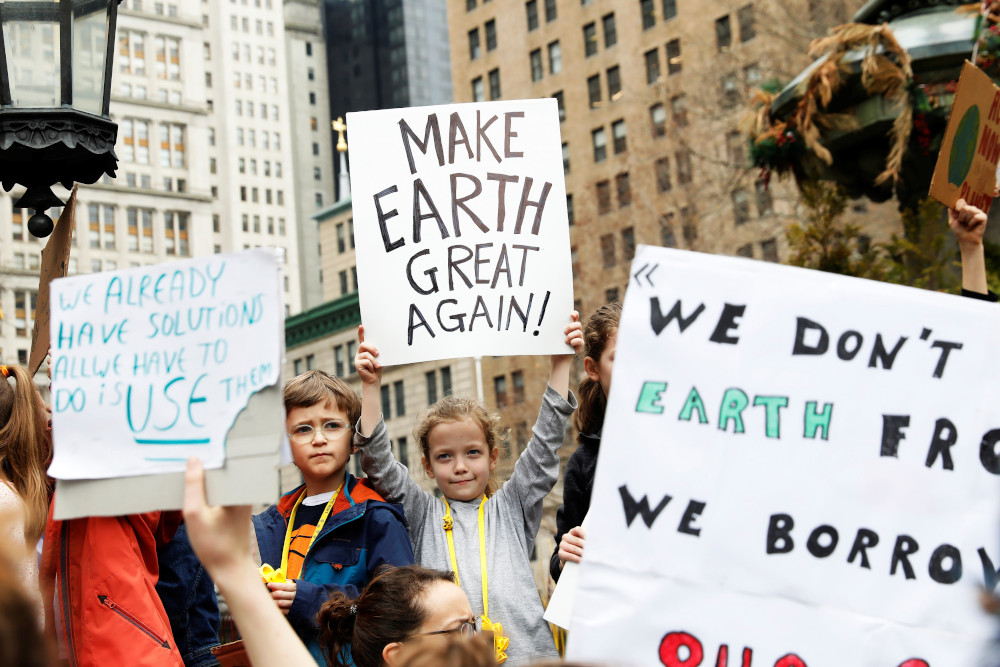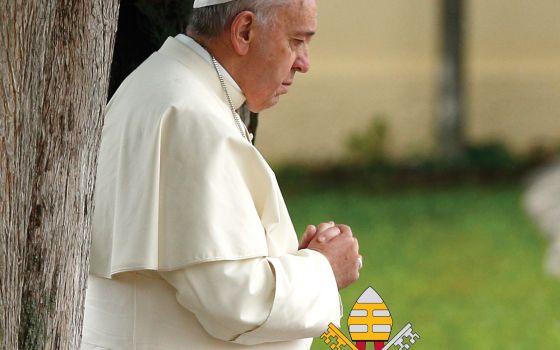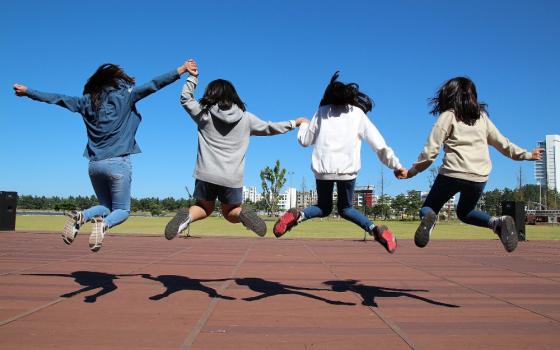
Students hold signs in New York City March 15, 2019, to demand action on climate change. Students from around the world are participating in the "strike." (CNS/Reuters/Shannon Stapleton)
READ
Chapter 4, sections 4 and 5
Pope Francis begins the ending of chapter 4 with an explanation of three pillars that support the common good. The first is "respect for the human person.. endowed with basic and inalienable rights." Second is "the overall welfare of society," principally "the family, as the basic cell of society." The third calls for social peace, or "the stability and security provided by a certain order which cannot be achieved without particular concern for distributive justice," and Francis warns, "whenever this is violated, violence always ensues." He insists, "Society as a whole, and the state in particular, are obliged to defend and promote the common good" (157).
Then, Francis writes, "the notion of the common good also extends to future generations." He explains: "The global economic crises have made painfully obvious the detrimental effects of disregarding our common destiny, which cannot exclude those who come after us. We can no longer speak of sustainable development apart from intergenerational solidarity. Once we start to think about the kind of world we are leaving to future generations, we look at things differently; we realize that the world is a gift which we have freely received and must share with others... Intergenerational solidarity is not optional, but rather a basic question of justice, since the world we have received also belongs to those who will follow us" (159).
In thinking about the needs of future generations, Francis adds that we cannot forget about the needs of the world's poor today. He writes: "Our inability to think seriously about future generations is linked to our inability to broaden the scope of our present interests and to give consideration to those who remain excluded from development. Let us not only keep the poor of the future in mind, but also today's poor, whose life on this earth is brief and who cannot keep on waiting. Hence, 'in addition to a fairer sense of intergenerational solidarity there is also an urgent moral need for a renewed sense of intragenerational solidarity'" (162).
REFLECT
What do you make of Francis' definition of the common good? How do your actions impact the three pillars?
When it comes to intergenerational solidarity, Francis asks us to consider, "What kind of world do we want to leave to those who come after us, to children who are now growing up?" As for intragenerational solidarity, Francis considers the present day and asks, "What is the purpose of our life in this world?" and "What need does the earth have of us?" He insists, "Unless we struggle with these deeper issues, I do not believe that our concern for ecology will produce significant results… We need to see that what is at stake is our own dignity. Leaving an inhabitable planet to future generations is, first and foremost, up to us" (160).
ACT
Aim to align your lifestyle and actions with concern for the common good and in solidarity with today's poor and future generations. The effects of climate change are already being felt around the world. With so much access to information, young people are seeing this and rising up to demand political change.
Environmental organizations that empower youth include the Alliance for Climate Education, Extinction Rebellion, Roots & Shoots, Sunrise, and Zero Hour. If you're older, consider donating to such organizations to match your empathy with material support. Instead of simply telling young people, "It's up to you to fix this mess," give them the tools to do so.
Advertisement







